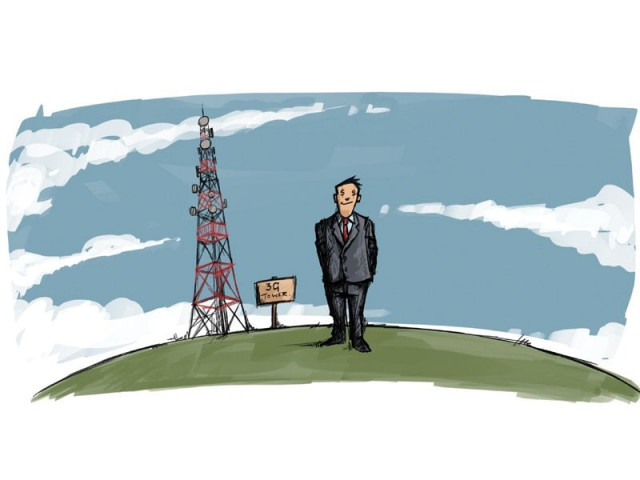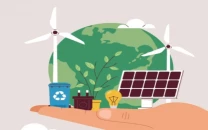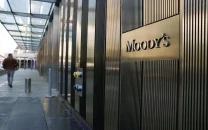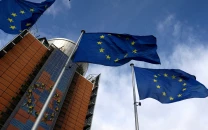High-growth market: Telenor upbeat on Pakistan, as focus shifts from voice to data
Telecom industry looking at investment of $5-10b over the next five to eight years.

Telecom industry looking at investment of $5-10b over the next five to eight years. ILLUSTRATION: JAMAL KHURSHID
If the government is able to strike the right balance between upfront 3G licence fees and the industry’s capacity to invest in infrastructure, Pakistan is looking at potential investment of $5-10 billion over the next five to eight years from the five players already operating in the country.
These are the words of Jon Fredrik Baksaas, CEO of the Telenor Group. He also added that his company was looking at a potential investment of anywhere up to $1 billion over the next two to three years in Pakistan, including the upfront 3G licence fees. “Telenor is already in the process of a network swap in Pakistan. We are upgrading our base stations, which will then be ready to receive 3G equipment. We are about 50% done and should be finished by the end of this calendar year,” he said.
Baksaas was speaking to a group of telecom journalists from Pakistan at the headquarters of the Telenor Group in Oslo. Contrary to common belief, he insisted that Pakistan was not really late in upgrading to 3G. “Pakistan is not necessarily late on 3G, but it is about time to get it done.”
He believes that the Pakistani market is now mature enough, with enough mobile penetration, for the demand for 3G to be building up to a healthy level. “On paper, there is about 70% mobile penetration in Pakistan, but probably a bit less in reality, since many people have more than one SIM,” he observed.
This indicates that there is a lot of pent-up demand, which means better-than-average growth rates in the initial years of 3G, as was the case in Thailand when it finally jumped on the 3G bandwagon.
He also hoped that now that Pakistan was finally gearing up, it would be smarter than India in launching 3G. “When India had their 3G auctions, the government was too concerned with how much money they could pocket upfront and did not focus on how much financial resources to leave behind in the industry for the infrastructure to be built up. My advice to the Government of Pakistan would be to think of the balance of upfront auction fees against the ability of the companies to build quality networks in the country.”
Baksaas said this would be great for the country. “Through investment, you create profitable companies which create employment and can then be taxed. I believe that if you can raise internet penetration in a country by 10%, you can raise the GDP by about 1.5 basis points.”
He also felt that a countrywide rollout of 3G, and subsequently 4G, was very important, instead of just in major cities. “The benefits of 3G to the countryside of Pakistan will be relatively higher than 3G in the city, when you think of the daily lives of individuals and services like health, education, financial services, etc.”
He, however, did not feel that new players would be able to capitalise on the opportunity for 3G. “It has been proven difficult for newcomers to get into 3G or 4G if they don’t already have an existing network. We believe telecom is an evolution that starts with voice and sms.” When asked about Telenor’s readiness, he had just this to say: “We are ready and we are willing and we have the capacities and the competencies to build 3G in Pakistan.”
Baksaas was, however, concerned with regular cellular shutdowns in the country, as he felt that this was not a practical or efficient solution and perhaps needed to be better thought out.
Taxes high, but country doing well otherwise
Telenor Group CEO Jon Fredrik Baksaas feels that based on broad parameters – including the regulatory structure, taxes and levies – Pakistan has by and large been able to provide a level playing field and a platform that has been relatively consistent to the one that was offered when they first bought the licence and entered the Pakistani market in 2005.
However, he also said that the portion of the revenue earned by telcos which goes to the government is one of the highest in all 12 countries where Telecom is present, with Thailand being the highest taxed market. “Yes, there has been additional taxation and levies and changes in the regulatory setup, like the need for every SIM to be linked to an ID, but this is no surprise as this is normal in most other markets.”
But he did not mean for this to come across as a complaint: “When it comes to taxation levels and periods where governments have looked for new revenue sources, it is very easy to look at telecom. We are an easy, reachable, taxable entity. This is the case in all countries, even here in Norway,” he pointed out.
But he did send out a note of caution. “The long-term effect of this is that if taxes or levies accumulate above a certain level, not defining what that level is, it reduces the ability of that industry to invest deeper into new technologies.”
He insisted that so far growth and penetration in Pakistan has been much better than regional peers like India, because of the way the local industry is structured and regulated. In India, he said, the focus is on intense competition in the cities alone, because of which rural areas are still not covered. In Pakistan, geographical coverage is excellent in comparison.
Published in The Express Tribune, June 24th, 2013.
Like Business on Facebook, follow @TribuneBiz on Twitter to stay informed and join in the conversation.


















COMMENTS
Comments are moderated and generally will be posted if they are on-topic and not abusive.
For more information, please see our Comments FAQ